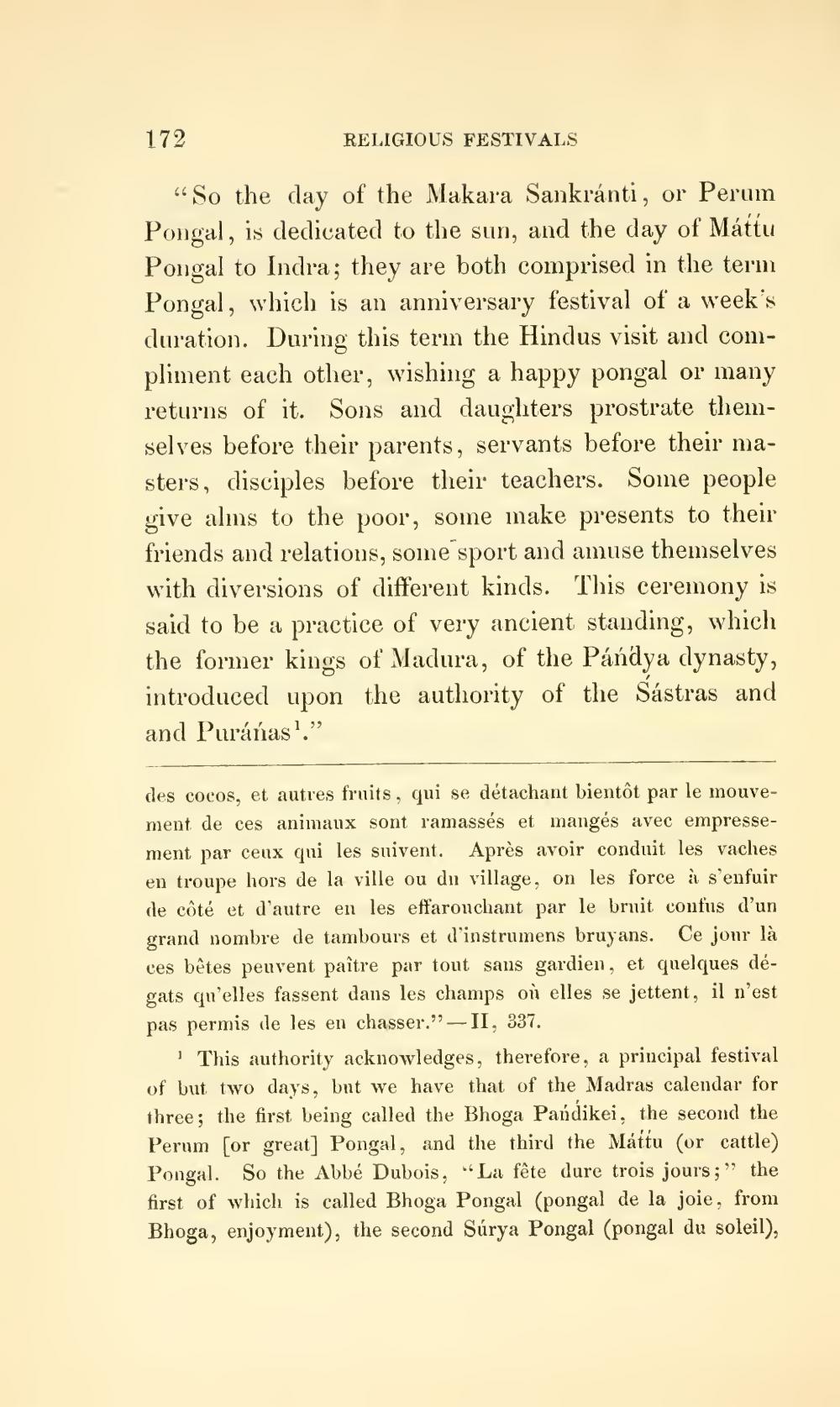________________
172
RELIGIOUS FESTIVALS
"So the day of the Makara Sankranti, or Perum Pongal, is dedicated to the sun, and the day of Máttu Pongal to Indra; they are both comprised in the term Pongal, which is an anniversary festival of a week's duration. During this term the Hindus visit and compliment each other, wishing a happy pongal or many returns of it. Sons and daughters prostrate themselves before their parents, servants before their masters, disciples before their teachers. Some people give alms to the poor, some make presents to their friends and relations, some sport and amuse themselves with diversions of different kinds. This ceremony is said to be a practice of very ancient standing, which the former kings of Madura, of the Pandya dynasty, introduced upon the authority of the Sástras and and Puránas1."
des cocos, et autres fruits, qui se détachant bientôt le mouvepar ment de ces animaux sont ramassés et mangés avec empressement par ceux qui les suivent. Après avoir conduit les vaches en troupe hors de la ville ou du village, on les force à s'enfuir de côté et d'autre en les effarouchant par le bruit confus d'un grand nombre de tambours et d'instrumens bruyans. Ce jour là ces bêtes peuvent paître par tout sans gardien, et quelques dégats qu'elles fassent dans les champs où elles se jettent, il n'est pas permis de les en chasser."-II, 337.
This authority acknowledges, therefore, a principal festival of but two days, but we have that of the Madras calendar for three; the first being called the Bhoga Pańdikei, the second the Perum [or great] Pongal, and the third the Máttu (or cattle) Pongal. So the Abbé Dubois, "La fête dure trois jours;" the first of which is called Bhoga Pongal (pongal de la joie, from Bhoga, enjoyment), the second Súrya Pongal (pongal du soleil),




